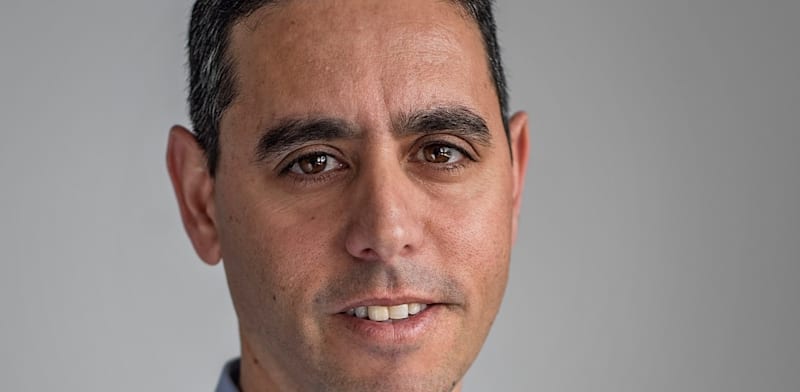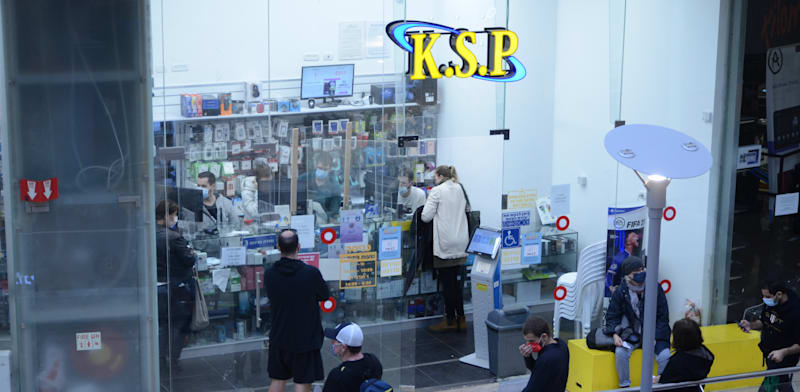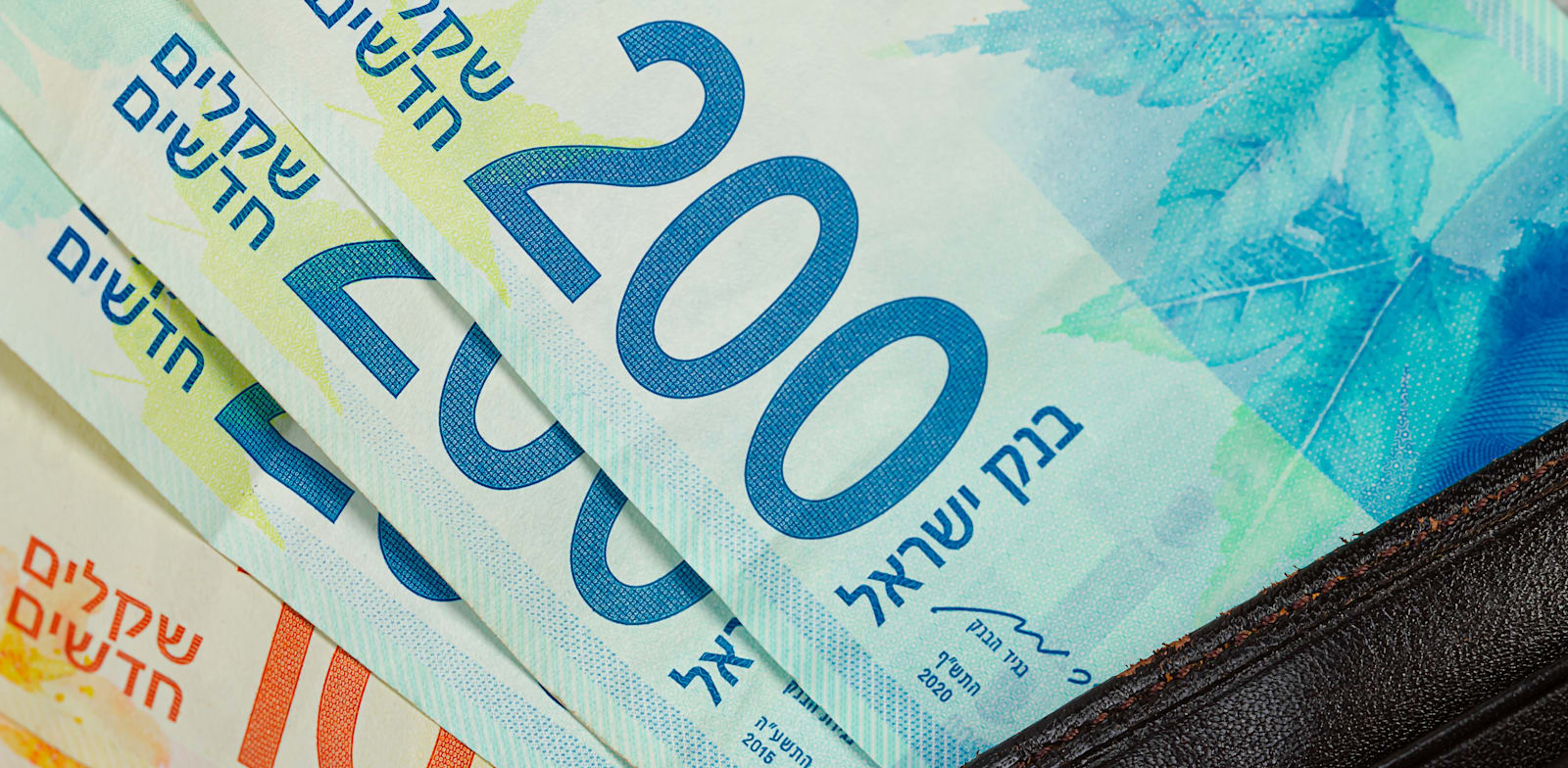ARTICLE AD BOX
The official invitation extended to the delegation could pave the way to closer Israel-Qatar ties.
Prime Minister Benjamin Netanyahu is on an official visit to Washington, where the issue of normalization with Saudi Arabia is on the agenda, among other things, but recently there has been an intriguing turn of events with another Gulf state: Qatar. For the first time ever, an Israeli delegation participated last week in the International Diamond and Gem Conference held in the Qatari capital Doha, "Globes" can reveal.
The delegation, which entered Qatar with Israeli passports, included Nissim Zuaretz, president of the Israel Diamond Exchange in Ramat Gan, and CEO Eran Zini, and was invited by Qatari Minister of Commerce and Industry Faisal Al-Thani. Although the event opened about ten days after the ceasefire with Hamas went into effect, Al-Thani had extended the invitation a month ago. During the event at The Ned Doha Hotel, the Qataris and other participants did not try to hide the Israeli presence.
Zuaretz was sat in the first row together with Qatar's Minister for International Trade Dr. Ahmed al-Saad and chairman of the Tourist Authority Saad Al Kharji. The most senior Qatari figure to attend the event was Prime Minister Mohammed Al Thani, who opened the exhibition. President of the Dubai Multi Commodities Center (DMCC) Ahmed Bin Sulayem expressed satisfaction over the invitation that had been extended to the Israelis.
Zuaretz said, "We are at the beginning of a process with the Qataris for many business opportunities, not only in the field of diamonds. Qatar is going to become a significant hub. Just as it started with Dubai, where today flights from Israel to Dubai never stop, and the UAE comes and invest money in Israel. The dialogue with them was very pleasant, and they received us respectfully. They know the potential of the Israelis, and what is happening with Trump may bring about a change in the economic strategy with them."
During the event, participants discussed the future of the global diamond industry, new technologies and international cooperation. Israel's status as a prominent diamond center has already been reflected in relations with Qatar over the years.
In 2021, Israel and Qatar reached an agreement that would allow Qatar to join the list of countries eligible to trade diamonds under the Kimberley Process of the Petroleum Exporting Countries (KPCS), of which Israel is a founding member. Doha has pledged to allow Israeli traders to enter the country, but today trade with the Gulf is focused on Dubai’s DMCC exchange, which also allows for contact with traders from countries with which Israel has no diplomatic relations.
RELATED ARTICLES
Reconciliation with neighbors
The same year that the diamond agreement with Israel was signed also saw the end of Qatar’s crisis with its Gulf neighbors. Led by Saudi Arabia and the UAE, they had boycotted it for about four years over allegations of supporting terrorism. However, tiny Qatar (population of three million, of whom only about 12% are Qataris), led since 2013 by Emir Tamim bin Hamad Al Thani, is an international player that is difficult to ignore. In the military sphere, major US Air Force base Al-Udeid is located near Doha. In the political sphere, the Al-Thani family is perceived in the West in general and by the Trump administration in particular as an effective mediator, as illustrated in the negotiations with Hamas while in the economic sphere, Qatar is the country with the highest natural gas reserves per capita in the world.
Natural gas is a critical factor in why GDP per capita in Qatar (about $80,200 in 2023, according to the World Bank) is particularly high, even by Gulf terms. For comparison, GDP per capita in the UAE and Saudi Arabia is about $49,000 and $21,000, respectively. Israel is somewhere in between these countries, with GDP per capita of about $52,600.
The diamond industry is one of Israel's oldest industries and exports. It began during the British Mandate period over 80 years ago, and is intertwined with the local economy. In the 1950s when Israel had a major shortage of foreign currency, it was the diamond industry that generated foreign exchange flow for the state coffers. Since then, the UAE established a free trade zone in Dubai, and became a critical players in the diamond market. In part due to the new competition, total diamond exports from Israel have fallen over the past decade. Partly due to the war, exports fell by 33.1% to $2.5 billion in 2024.
Zini said, "The competition between us and Dubai and Qatar, which has decided to strongly enter the diamond sector, is not a competition between companies, but between governments. They have understood how important the jewelry and diamond sector is, while Israel is not paying attention and losing its comparative advantage. Yet we are still considered serious players in the market, with the best diamonds in the world."
With the war ending, cooperation with Qatar may be beneficial in the diamond sector. The Qataris have great financial and logistical capabilities on an international scale that could harm Israel's position in the market, especially with the UAE's influence, but at the same time, Israel is recognized as having the greatest knowhow and experience in the industry and all parties can generate mutual success.
Relations were frozen
The diamond connection may increase Qatari interest in strengthening economic ties with Israel, perhaps on the way to normalization in the foreseeable future. In the case of the UAE, diamond industry ties between the countries preceded the the Abraham Accords. "Even before the Abraham Accords, there were diamond agreements with Dubai," recounts Zuaretz. "The global market understands that if you want to be a significant player, you need to have a connection to Israel."
Qatar has a longer "connection" to Israel than most Gulf states. Following the Madrid Conference in 1991, ties between the countries were formed, when following the Oslo agreement, then-Foreign Minister Shimon Peres met with his Qatari counterpart. Immediately afterward, Israel examined the possibility of purchasing natural gas from Doha, and in 1996, Qatar and Israel established diplomatic relations at the commercial attachés level.
The outbreak of the second intifada led to the closure of the Qatari mission in 2000, but Doha, led by the father of the current emir, Hamad al-Thani, was quick to renew relations. Three years later, then-Qatari Foreign Minister Hamad al-Thani even stated that if a peace agreement with Israel would benefit Doha's interests, they would consider such a step. That step did not materialize; during Operation Cast Lead in 2009, the Israeli mission was closed again after which Prime Minister Netanyahu refused to renew relations on the same format.
Since then, and especially after Emir Tamim came to power in 2013, Israeli-Qatar relations have been characterized by distrust and suspicion. It was convenient for Jerusalem to use Doha's ties with Hamas for mediation, and even to transfer a monthly grant of $30 million to Gaza from Operation Protective Edge in 2014 until October 7, 2023. At the same time, security ties between the parties have tightened since the US decision to transfer Israeli territory to the area of jurisdiction of Central Command (CENTCOM) about four years ago. In this context, in 2022, Saudi website Elaaf reported that the previous IDF Chief of Staff Aviv Kochavi met with the Qatari Chief of Staff Salem Bin Hamad Al Aqeel at the headquarters of the US Fifth Fleet in Bahrain.
Published by Globes, Israel business news - en.globes.co.il - on February 5, 2025.
© Copyright of Globes Publisher Itonut (1983) Ltd., 2025.

 7 hours ago
3
7 hours ago
3








 English (US) ·
English (US) ·